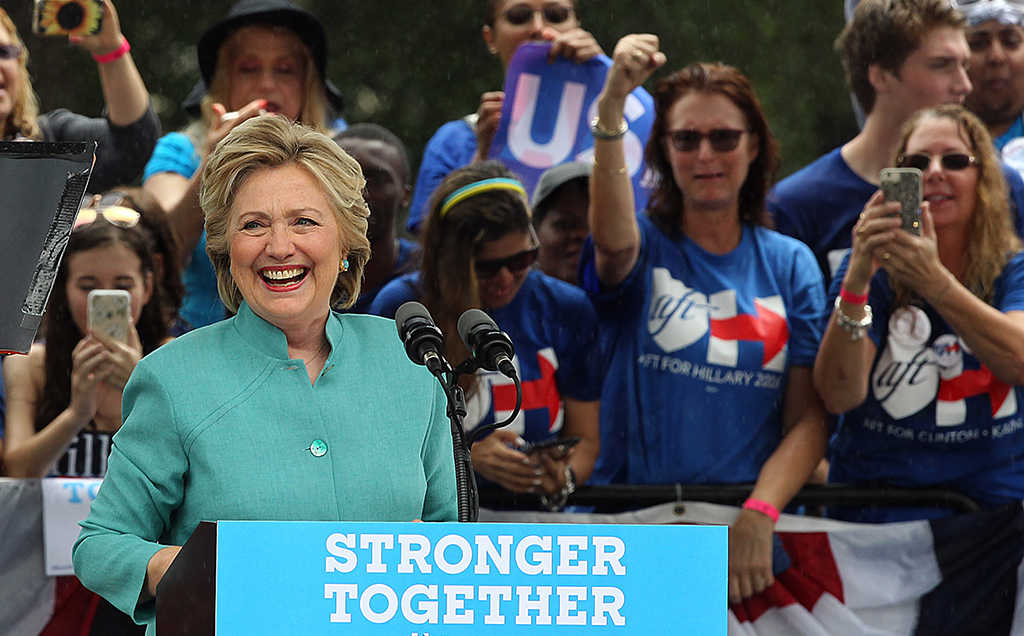
Failure and the Democratic Party become more synonymous with every passing election. In 2010, they lost the House of Representatives. In 2014, they lost the Senate. In 2016, they lost the White House. Their popularity fell 12 percent in the last two decades. With President Donald Trump reaching record disapproval, the democrats now have the perfect chance to reverse their image problem, but they must make serious changes to their strategy, policy positions and leadership.
Since the 2016 election, the Democratic Party listed numerous reasons as to why they failed to win the House, the Senate and the presidency. These include democratic presidential candidate Hillary Clinton‘s FBI investigation, the Russian government, Bernie Sanders (VT), Jill Stein, sexism, racism and negative media coverage. Interestingly enough, their rationale does not blame the Democratic National Committee, the Clinton campaign or even Clinton herself. Rather, most of their rhetoric centers around blaming either Bernie Sanders or the email scandal, courtesy of Wikileaks.
An article published in The Forum: A Journal of Applied Research in Contemporary Politics, entitled “Political Advertising in 2016: The Presidential Election as Outlier?” proved that simply attacking the character of one’s opponent does not win elections.
The study found that nearly all of Clinton’s advertisements in the general election severely lacked policy substance. Personal attacks against her opponent Donald Trump comprised 90 percent of Clinton’s negative ads, while the remaining 10 percent focused on Trump’s policies. In contrast, 70 percent of Trump’s attack ads mentioned her policies. The article states Trump “provided explicit policy-based contrasts, highlighting his strengths and Clinton’s weaknesses, a strategy that research suggests voters find helpful in decision-making.” The researchers also concluded that Clinton was “more prone to voter backlash” and that her biggest upsets occurred in states where her ads did not run until late in the election. If the democrats want to win the next election, they need to stick to policy substance and provide facts to support their effectiveness as leaders.
Where the democrats failed, republicans succeeded. Backing out of trade deals and keeping jobs in the United States served as centerpieces of the republicans’ platform.
Ultimately, issues like these won Trump the election, costing Clinton key states. According to exit polls, 65 percent of Trump voters said international trade costs jobs. Overall, 42 percent of voters agreed that trade costs jobs. In the former democratic strongholds that turned red in 2016, Rust Belt states such as Michigan and Wisconsin, a far greater percentage of voters agreed with this sentiment. This further demonstrates that the electorate values policy substance.
Trump made railing against trade deals like the North American Free Trade Agreement and the Trans-Pacific Partnership the centerpiece of his campaign. Meanwhile, Clinton only came out against TPP in the second democratic debate when Bernie Sanders argued against it. Before that, she called it the “gold standard” of trade agreements, pushing for it 45 times as Secretary of State.
Such international trade agreements historically lead to spikes in American unemployment, shipping jobs overseas and contributing to sweat shops in the third world. In signing these agreements, the federal government greatly benefits multinational corporations instead of the people they swear to serve.
The top democrats leading this party consistently fail to fight for the American people by not supporting wildly popular ideas like free college, universal healthcare, making drug prices more affordable and getting money out of politics.
Establishment democrats often vote against such policies. In a recent example, Senator Cory Booker (NJ) joined senate republicans in blocking an amendment allowing Americans to purchase pharmaceutical drugs from Canada, instead of the United States, whose drug prices dwarf those of Canada. A testament to the influence of money in politics, Booker received more money from drug companies in the last six years than any other democratic senator, while many of the other democrats that opposed the bill like Michael Bennet (CO), Bob Casey (PA) and Patty Murray (WA) also received six-figure big pharma donations.
The fix proves simple for the DNC to accomplish: reestablish a connection with the liberal base and represent their interests. Given this simplicity, one must wonder why top DNC officials like Charles Schumer (NY) still oppose pushing for popular liberal ideas. But upon looking at what industries and organizations contribute to Schumer and other establishment democrats, the answer becomes clear. Laxed campaign finance laws allow for monied interests to creep into politics via millions of dollars in corporate and PAC donations.
Post-election, the DNC made Schumer the Senate Minority Leader and Tom Perez the new DNC Chair, despite the latter’s support of TPP and status as a registered corporate lobbyist. The DNC staffed the Trump “war room” with establishment democrats: DNC insiders and former Clinton staffers, people proven to fail in combatting the Trump campaign. As opposed to the firebrand progressive Bernie Sanders, who continues to demonstrate an unparalleled aptness for rallying support for liberal cause not just among democrats in government, but voters across the political spectrum. As the most popular senator in America, Sanders visits states that turned red in the 2016 election, wherein he hosts town halls promoting liberal policies, met with cheers and applause.
Sanders remains at the forefront of the fight for progressive causes, making headlines for boldly challenging Betsy DeVos, pushing for “Medicare-for-all,” exposing Trump’s fraudulent governance in office, debating Senator Ted Cruz on healthcare and playing an integral role in New York becoming the first state to make public college tuition-free for middle and lower class students. Given his public activism and overall presence among the electorate, Sanders currently makes for a better head of the Democratic Party than Schumer, with nearly two and a half times the popularity and zero percent of the corporate money.
If democrats want to win back the American people, they must learn from their mistakes, change their strategy, adopt a more progressive platform and get rid of the corruption within their ranks. Otherwise, their losing streak will only worsen.
